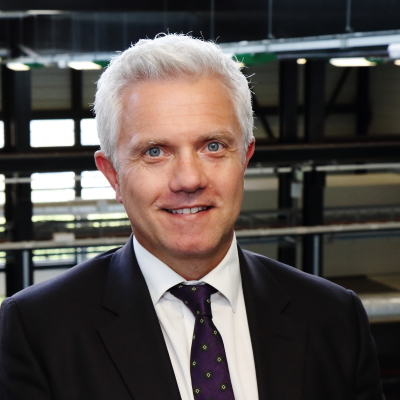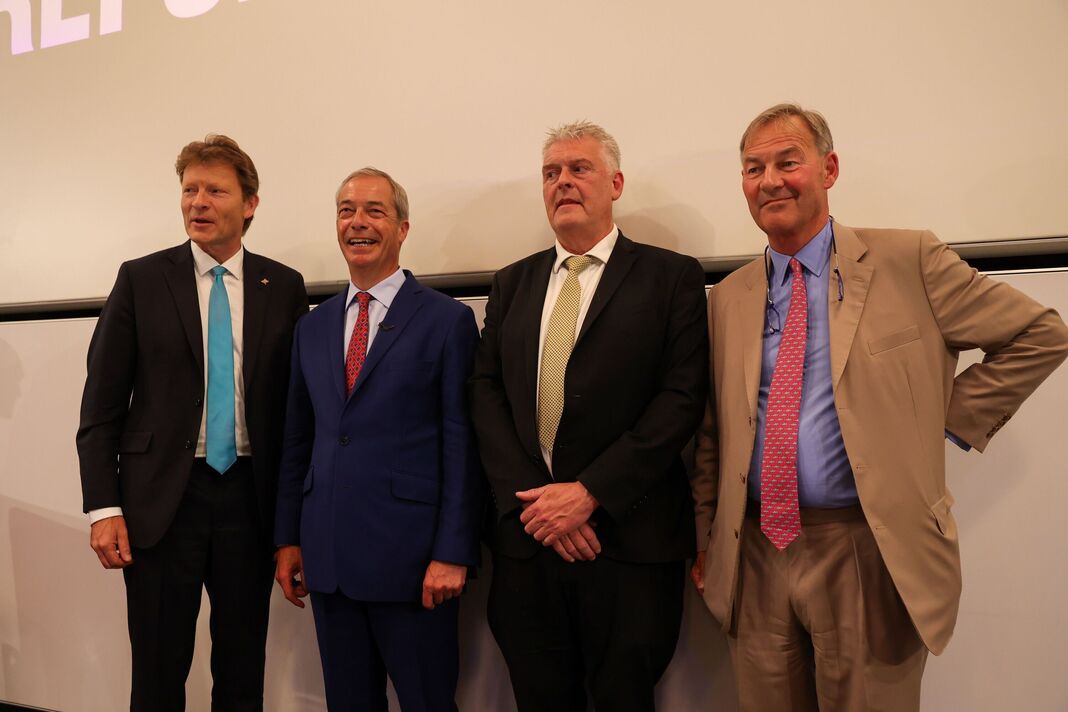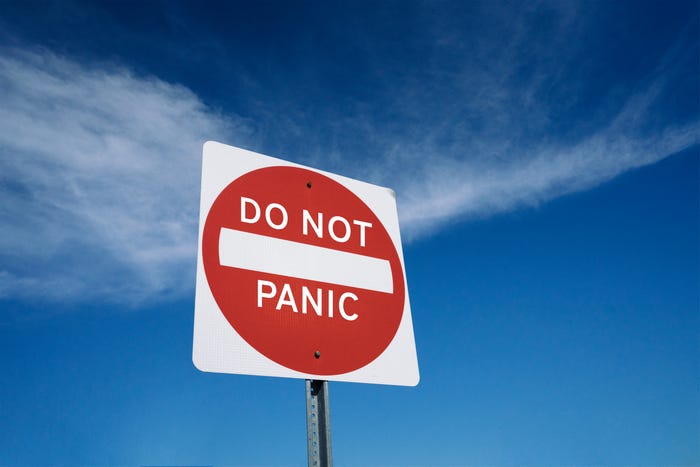Europe's Nuclear Future: A French Perspective

Table of Contents
France's Current Nuclear Landscape
The Dominance of Nuclear Power in France
Nuclear energy plays a dominant role in France's energy mix. It consistently provides over 70% of the nation's electricity, a significantly higher percentage than any other European nation. This heavy reliance on nuclear power contributes significantly to France's energy independence and security, reducing its vulnerability to volatile fossil fuel markets.
- Specific percentage of electricity from nuclear: Consistently above 70%, often exceeding 75%.
- Comparison to other European nations: Far surpasses other EU countries, many of which are phasing out nuclear power or have far lower reliance.
- Economic benefits of nuclear power in France: Provides stable, low-cost electricity, supporting economic competitiveness and industrial growth.
Aging Nuclear Infrastructure and Modernization
Maintaining and upgrading France's aging nuclear power plants presents a significant challenge. Many reactors are nearing the end of their initial operational lifespan, requiring substantial investment in modernization and lifespan extension programs. This involves complex engineering projects, rigorous safety inspections, and considerable financial resources.
- Number of reactors: France operates 56 nuclear reactors across 19 nuclear power plants.
- Average age of reactors: Many reactors are approaching or exceeding 40 years of operation.
- Planned upgrades and renovations: EDF, the French national electricity company, has ongoing programs to extend the operational life of existing reactors.
- Costs associated with modernization: Billions of euros are invested annually in maintaining and upgrading the existing nuclear fleet.
Public Opinion and Nuclear Energy in France
Public opinion on nuclear energy in France is complex and evolving. While a significant portion of the population remains supportive of nuclear power due to its energy security benefits and relatively low carbon emissions, concerns persist regarding safety, waste disposal, and the potential for accidents. Government communication and transparency are key to maintaining public trust.
- Recent polling data on public opinion: Surveys show fluctuating levels of public support, with concerns often linked to specific incidents or debates.
- Key concerns regarding nuclear safety and waste disposal: The long-term storage of nuclear waste and the potential risks associated with accidents remain central public concerns.
- Government efforts to address public concerns: The French government invests heavily in nuclear safety research and communication campaigns aimed at addressing public anxieties.
France's Role in Europe's Nuclear Future
Nuclear Cooperation and Technology Transfer
France has a long history of exporting nuclear technology and expertise. Its experience and technological advancements in reactor design, construction, and operation make it a significant player in international nuclear collaborations. This expertise translates into economic benefits for France and contributes to the development of nuclear energy in partner countries.
- Examples of international collaborations: France has been involved in numerous nuclear projects across the globe, including collaborations with countries in Eastern Europe and beyond.
- Countries collaborating with France: Numerous countries benefit from French nuclear expertise through joint ventures and technology transfer agreements.
- Economic benefits of exporting nuclear technology: The export of nuclear technology and services creates significant economic opportunities for French industries.
Influence on EU Energy Policy
France's strong commitment to nuclear power significantly influences the European Union's energy policy discussions. France advocates for the recognition of nuclear energy as a low-carbon energy source crucial for achieving climate goals. However, this position faces challenges from other EU member states with different energy mixes and priorities.
- France's position on nuclear energy within the EU: France actively promotes nuclear energy as a key component of Europe's energy transition.
- Impact on EU energy policy: France's influence is evident in ongoing debates regarding the classification of nuclear energy in the EU's taxonomy.
- Challenges and opportunities for nuclear energy within the EU framework: The EU's diverse energy landscape creates both challenges and opportunities for nuclear power's future role.
Addressing Nuclear Waste Management
France's approach to nuclear waste management is a crucial aspect of its overall nuclear strategy. While progress has been made in developing safe and secure storage solutions, challenges remain in managing the long-term risks associated with radioactive waste. International collaboration is key to addressing these challenges on a broader European scale.
- Current waste management strategies: France employs a multi-layered approach, involving interim storage and ongoing research into long-term disposal options.
- Plans for long-term storage: The development of geological repositories for high-level radioactive waste is a long-term goal.
- International collaboration on waste management: France collaborates with other European nations and international organizations on research and best practices in waste management.
- Public perception of waste management solutions: Public acceptance of proposed solutions for long-term waste storage is crucial for the sustainability of France's nuclear program.
Challenges and Opportunities
The Rise of Renewable Energies
The increasing adoption of renewable energy sources, such as solar and wind power, poses a significant challenge to the future of nuclear power. Renewable energies are becoming increasingly cost-competitive, impacting the long-term economic viability of nuclear power plants. However, nuclear power's role as a reliable baseload power source remains critical for grid stability.
- Growth of renewable energy in France and Europe: Renewable energy capacity is expanding rapidly across Europe, including France.
- Integration of renewables into the energy grid: Integrating intermittent renewable sources with stable baseload power sources like nuclear energy requires careful grid management.
- The role of nuclear energy as a baseload power source: Nuclear power's reliability and predictability make it a valuable asset in a grid increasingly reliant on intermittent renewable sources.
Nuclear Safety and Security
Ensuring the safety and security of nuclear power plants remains paramount. France has implemented stringent safety regulations and protocols to minimize the risk of accidents and to protect against potential terrorist threats. International collaboration on safety standards and security measures is crucial.
- Safety regulations and protocols: France adheres to strict safety regulations and conducts regular inspections to ensure the safe operation of its nuclear facilities.
- Measures to prevent accidents: Multiple layers of safety systems and procedures are in place to mitigate the risk of accidents.
- Public perception of safety: Maintaining public confidence in nuclear safety is essential for the continued acceptance of nuclear power.
- International collaborations on nuclear safety: France actively participates in international organizations and initiatives dedicated to enhancing nuclear safety.
Economic Viability of Nuclear Power
The economic viability of nuclear power is influenced by various factors, including construction costs, operational expenses, and potential government subsidies. While the upfront investment in new nuclear power plants is substantial, the long-term operational costs can be relatively low, leading to stable and predictable electricity prices.
- Cost comparisons with renewable energy: The cost competitiveness of nuclear power relative to renewable energy varies depending on specific technologies and regional contexts.
- Government support for nuclear energy: Government policies play a crucial role in supporting the long-term viability of the nuclear industry.
- Long-term economic projections: Economic models are used to assess the long-term cost-effectiveness of nuclear power compared to other energy sources.
Conclusion
France's perspective on Europe's nuclear future is multifaceted, shaped by its significant reliance on nuclear energy, its technological expertise, and its position within the European Union. While challenges related to aging infrastructure, public perception, and competition from renewables persist, France remains a key player in shaping the continent's energy landscape. Continued investment in modernization, robust safety measures, and transparent communication are crucial to ensuring a sustainable and secure nuclear future. Understanding Europe's Nuclear Future: A French Perspective is essential for navigating the complex energy choices facing Europe. Further research into specific aspects of France's nuclear program and its international collaborations will provide a more comprehensive understanding of the subject.

Featured Posts
-
 La Cite De La Gastronomie De Dijon Et Les Difficultes D Epicure Quelle Intervention
May 10, 2025
La Cite De La Gastronomie De Dijon Et Les Difficultes D Epicure Quelle Intervention
May 10, 2025 -
 Attorney Generals Daily Fox News Appearances Context And Concerns
May 10, 2025
Attorney Generals Daily Fox News Appearances Context And Concerns
May 10, 2025 -
 Economic Uncertainty Prompts Federal Reserve To Hold Interest Rates
May 10, 2025
Economic Uncertainty Prompts Federal Reserve To Hold Interest Rates
May 10, 2025 -
 Will Nigel Farages Reform Party Succeed Beyond The Complaints
May 10, 2025
Will Nigel Farages Reform Party Succeed Beyond The Complaints
May 10, 2025 -
 High Stock Valuations Why Bof A Believes Investors Shouldnt Panic
May 10, 2025
High Stock Valuations Why Bof A Believes Investors Shouldnt Panic
May 10, 2025
